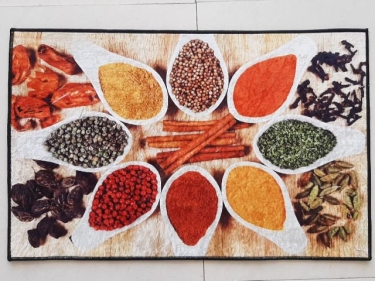Couldn't find the product you want?
Fill out this form to request the product.
Exports

Export Portal is the leading export/import portal connecting suppliers, manufacturers, exporters, wholesalers, buyers and importers on a worldwide level. Iranian suppliers/manufacturers/exporters can promote their products to get more inquiries on Exportportal.com. Importers/buyers can search and contact suppliers by category, country and keywords. As to buyers, interested in buying Iranian products, Exportportal is your best source for buying online High Quality Made in Iran Products from Global Iranian Exporters, Iranian Suppliers and Iranian Manufacturers.
Iran is a founding member of OPEC and the Organization of Gas Exporting Countries. Petroleum constitutes 80% of Iran's exports. The country is considered one of the leading exporters of dried fruit (such as Golden Raisins, Sultana Raisins, Pistachios, Kashmar Raisins, Iranian Dates, Date paste, Date Syrup and Figs.) Handmade Persian Carpet is the highest source of foreign exchange earnings as well. Handmade carpet production in the country goes back to the history, having cultural, artistic, and historical heritage attached to it. In rural places in Iran, nearly every woman knows how to make carpets as they learn this from their mothers and grow up with it.
Export Portal is one of the largest export/import directories where you can easily find and contact wholesalers from Iran, Iranian Distributors, Iranian Wholesale Suppliers, Iranian Exporters or Iranian Producers. All the products available on the site are classified into categories and sub-categories. This allows you to shop easily online for Persian Rugs, Iranian Nuts, Iranian Raisins, Iranian Pistachios, Iranian Dates, Iranian Ceramic Tiles and many other goods made in Iran.
Customs requirements of Iran
Iran Customs Contacts
Website: http://www.irica.gov.ir/
Email: p.r.irica@irica.org
Address: Tehran, Emam Khomeyni St, Iran
Tel: +98 (21) 8850 1425
Fax: +98 (21) 82991
Iran is a country situated in Western Asia, bordered by Armenia, Azerbaijan, Kazakhstan, Russia, Turkmenistan, Afghanistan, Pakistan, Turkey and Iraq. The country is a member of the International Chamber of Commerce, the Economic Cooperation Organisation, World Customs Organization, the WTO (observer) and other international organizations.
Tariffs
Customs tariffs on imported goods vary from 10 to 25%, and are applied on a wide range of products as follows:
- chemical industry products, ordinary metals and relevant products, measurement instruments, medical equipments – 10%
- food industry, mining, raw production, leather industry, paper and wood, fabrics, mechanical machinery – 15%
- agricultural raw production, electric machinery - 25
- transportation vehicles and parts – 25-50%
- automotive vehicles - 100%
Importers will also have to pay a value added tax varying from 3 to 10%.
Some goods may be subject to double taxation.
However, there is a list of products exempt from customs duties:
- unprocessed agricultural products
- flour, bread, sugar, rice, milk cheese
- machinery
- livestock and animals
- feedstock and pesticides
Product certification, labeling and packaging
Licensing
Iran is a restricted country requiring exporter licensing.
Health certificates are required the import of animals and animal products, food products and plants.
A halal certificate is required for all meat and poultry products.
Products such as live animals, raw animal products, medicines, biological substances, animal feed, hatching eggs require a veterinary certificate.
Labeling
There are special labeling requirements for pharmaceuticals, foodstuff sold in containers, beverages, mineral waters, syrups, juices and extracts, beauty supplies and accessories.
Labels, instructions and descriptions should preferably be indicated in Farsi (Persian).
Packing
The imported goods should be adequately packed and waterproofed.
Port and consignee marks should be indicated on the packages.
Packages should indicate gross weight in kilograms or metric tons.
Prohibited products: all kinds of drinks containing alcohol and pork meat.
Documents for import
- Commercial invoice (certified by a recognized chamber of commerce)
- Bill of lading
- Pro forma invoice
- Certificate of origin
- Import licenses/permits
Sources:
